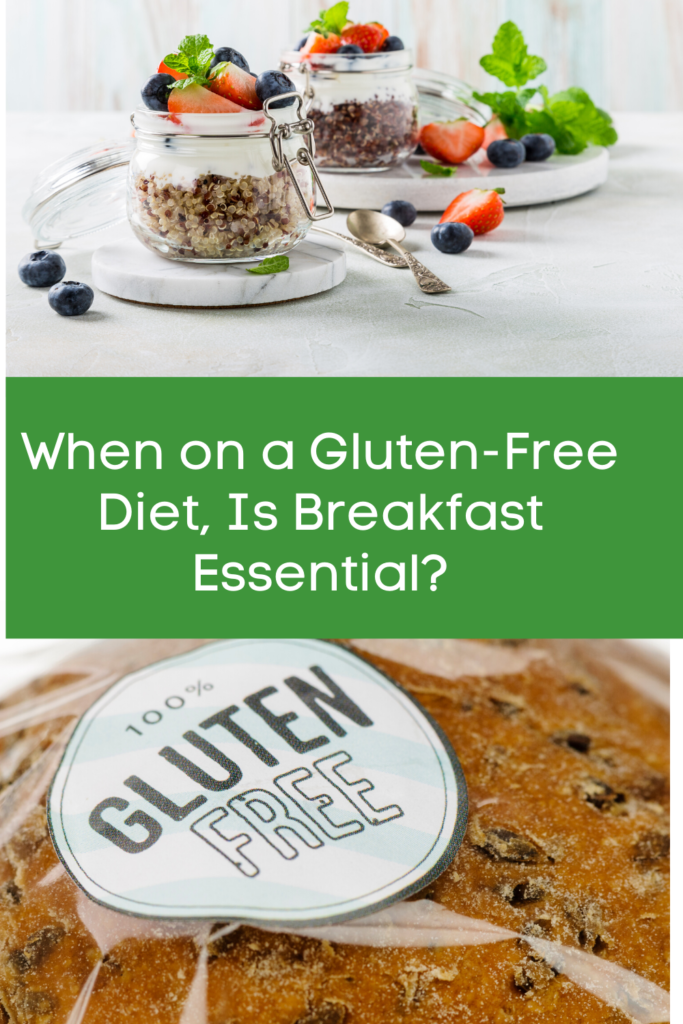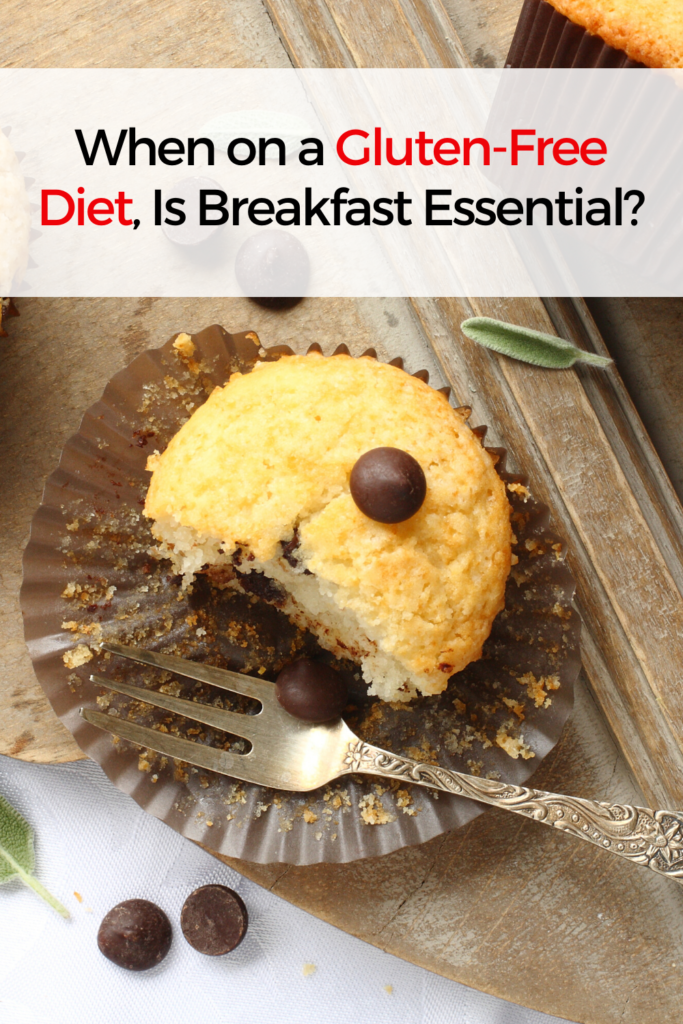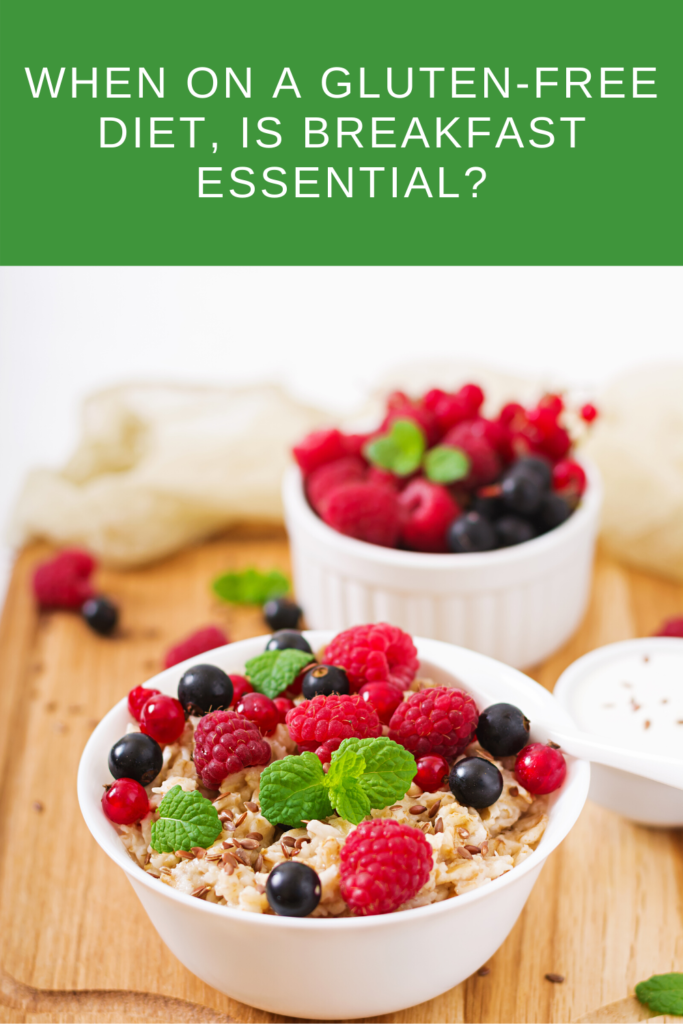Deciding what to eat for breakfast is one of the biggest challenges people on a gluten-free diet face daily. Most of us were raised eating toast, cereal, pastries, etc. for breakfast. When you’re on a gluten-free diet, you’ll find you have to give up most of the childhood breakfast items you grew up on.
At one point in my life, I was eating steel cut oats daily until that seemed to cause me problems as well.

If you find that yourself craving bread, you know have to find a way to eat gluten-free bread, cookies, pastries, etc, instead. Besides the hassle of having to find gluten-free bread, you are also going to pay a lot more for it as well.
As for me, I just gave it up and switched to eating Chia Pudding instead. Doesn’t always satisfy the cravings but eliminates the physical reactions to things I shouldn’t eat.
There are many other types of nutritious things you can eat for breakfast, like quinoa or even a chicken leg if you want but this article presents another alternative you might not have considered – just skip breakfast altogether.
Gasp – Yes, you read that right and if you are like me, you gasped out loud because the thought of NOT eating breakfast is unimaginable. Never mind the fact that we’ve been told for years that breakfast is the “most important meal of the day.”

Here’s something to consider: your body can function just as well without breakfast. In fact, it just might be better if you do skip breakfast. Here’s why. When you skip breakfast, your body will be in a state of fasting for a longer period of time. Breakfast, after all, means to break the fast. If you typically sleep for 7-8 hours and skip breakfast, your first meal may be at 11am or noon.
There are studies showing that “intermediate fasting” is actually a good way to optimally run your body and your metabolism. If you are looking to get rid of weight, this is one way to do that.
The thinking goes like this: During a set period of time during the night while you sleep, your body is in a fast and burns fat stores for fuel. The intermittent fasting concept of fasting for about 16 hours a day is one of the best healthy habits that you could chose for your health.
I have tried this in the past and it works like this. I pick an 8 hour period during the day that I will eat my meals. I found it difficult to not eat in the morning so I picked the time frame of 9am to 5pm. I can eat ONLY during that time frame and fast during the rest of the time.
Many people have even more success with making the eating window smaller and fasting for more hours. You’d have to test this to see what works best for you.
Let’s be honest, obesity has reached epidemic proportions in the US right now. Many people are hoping to change their health and intermittent fasting not only helps shed unwanted pounds, but it appears to come with an abundance of other health benefits too.
Choosing to fast helps reduce insulin resistance, makes your cells function more optimally, can help prevent cancer, improves blood health, and even more benefits.
Even better, if you happen to be on a gluten-free diet, you won’t have to constantly be trying to figure out what to eat for breakfast besides meat, fruit or vegetables. You can choose to skip breakfast completely and reap the benefits too.
Obviously, if you are not used to eating like this, it’s going to take some time to get used to this way of life. Probably about 2 weeks to get into the habit of living this way. For optimal results, you should be aiming for a 16-hour fasting window daily.
I know when I tried it, I had to adjust my meal time window on occasion if I had a meeting to go to, or a function to attend.
Depending on what kind of schedule you have, adjusting may mean having your first meal at 12pm and your last meal for the day might be before 8pm. If you are living a “normal” day shift schedule, you might want to be sure your last meal is at least 2-3 hours before you go to bed. 8pm was too late for me as I hit the hay at 10pm.
You will need to play around with the timing a little bit to see what works best for you and your lifestyle. As long as you’re fasting for 16 hours, you’ll be good to go. For the high achievers out there, if you can fast for 18 to 20 hours and have a shorter eating window, you can potentially accelerate your weight loss efforts even more (assuming you want to lose weight)
When you first start something like this, it’s going to see a little unusual to skip breakfast completely, but if you research for yourself, you are going to see how powerful intermittent fasting really is.
If you must have something to eat in the morning, you may consume something called “bulletproof coffee.” Bulletproof coffee is made by simply mixing some ghee and coconut oil into your morning coffee. It’s supposed to keep you feeling full for hours and help you get by until lunch time.
When doing the intermittent fasting, you not only consume less carbohydrates, you might find it a lot easier to follow a gluten-free diet.
I encourage you to give this a try. As always, consult with your physician first before taking on any new eating plan. If you do give it a try, I’d love to hear how it goes for you.
Leave a comment below if you’ve tried it, OR, if you’ve found a good alternative for breakfast when eating gluten-free.

Have questions or comments, you can Contact me as well.

